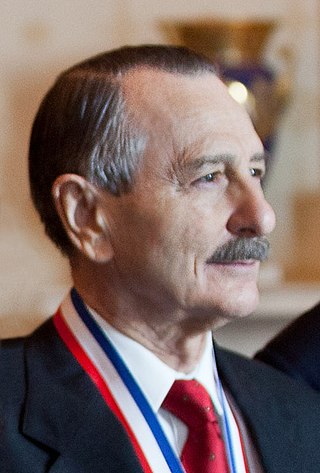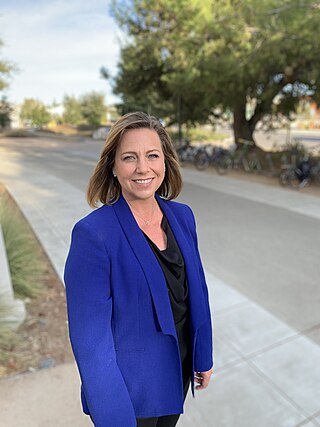Related Research Articles

The National Academy of Sciences (NAS) is a United States nonprofit, non-governmental organization. NAS is part of the National Academies of Sciences, Engineering, and Medicine, along with the National Academy of Engineering (NAE) and the National Academy of Medicine (NAM).

The Swedish University of Agricultural Sciences, or Swedish Agricultural University is a public research university in Sweden. Although its main campus and head office is located in Ultuna, Uppsala, the university has several campuses in different parts of Sweden; the other main facilities being Alnarp in Lomma Municipality, Skara, and Umeå.

A veterinarian (vet) is a medical professional who practices veterinary medicine. They manage a wide range of health conditions and injuries in non-human animals. Along with this, veterinarians also play a role in animal reproduction, health management, conservation, husbandry and breeding and preventive medicine like nutrition, vaccination and parasitic control as well as biosecurity and zoonotic disease surveillance and prevention.

Günter Blobel was a Silesian German and American biologist and 1999 Nobel Prize laureate in Physiology for the discovery that proteins have intrinsic signals that govern their transport and localization in the cell.

The Federal University of Minas Gerais is a federal research university located in the state of Minas Gerais. Its main and biggest campus is located in the city of Belo Horizonte, Brazil. It is one of Brazil's five largest and highest-ranked universities,. It offers 79 undergraduate education programs, upon completion of their curricular schedule the student is awarded either a bachelor's degree, a licenciate degree, or a professional title, all officialized by the issue of a university diploma. It also has 90 postgraduate education programs, awarding 30 postbaccalaureate specialization degrees, 92 master's degrees, and 72 doctoral degrees, as well as 41 medical residency programs offered at UFMG's hospital facilities complexes. The university also has campi at Tiradentes and Montes Claros. Most courses, however, are taught at the main campus, located in the Pampulha district of Belo Horizonte.
The National Academy of Medicine (NAM), known as the Institute of Medicine (IoM) until 2015, is an American nonprofit, non-governmental organization. The National Academy of Medicine is a part of the National Academies of Sciences, Engineering, and Medicine, along with the National Academy of Sciences (NAS), National Academy of Engineering (NAE), and the National Research Council (NRC).

Martin Joseph Fettman is an American pathologist and researcher who flew on NASA Space Shuttle mission STS-58 aboard the Space Shuttle Columbia as a Payload Specialist.

The New York State College of Veterinary Medicine at Cornell University is a college of veterinary medicine at Cornell University, in Ithaca, New York. It was founded in 1894. It is the first statutory college of the State University of New York (SUNY) system.

The American Veterinary Medical Association (AVMA) is an American not-for-profit association founded in 1863 that represents more than 105,000 veterinarians.

Oswaldo Gonçalves Cruz, was a Brazilian physician, pioneer bacteriologist, epidemiologist and public health officer and the founder of the Oswaldo Cruz Institute.

Science and technology in Brazil has entered the international arena in recent decades. The central agency for science and technology in Brazil is the Ministry of Science and Technology, which includes the CNPq and Finep. This ministry also has a direct supervision over the National Institute for Space Research, the National Institute of Amazonian Research, and the National Institute of Technology (Brazil). The ministry is also responsible for the Secretariat for Computer and Automation Policy, which is the successor of the SEI. The Ministry of Science and Technology, which the Sarney government created in March 1985, was headed initially by a person associated with the nationalist ideologies of the past. Although the new minister was able to raise the budget for the science and technology sector, he remained isolated within the government and had no influence on policy making for the economy.

The Oswaldo Cruz Foundation is a scientific institution for research and development in biological sciences located in Rio de Janeiro, Brazil; it is considered one of the world's main public health research institutions. It was founded by Dr. Oswaldo Cruz, a noted physician and epidemiologist.

Carlos Chagas Filho was a Brazilian physician, biologist and scientist active in the field of neuroscience. He was internationally renowned for his investigations on the neural mechanisms underlying the phenomenon of electrogenesis by the electroplaques of electric fishes. He was also an important scientific leader, being one of the founders of the Biophysics Institute of the Federal University of Rio de Janeiro and was also a president for 16 years of the Vatican's Pontifical Academy of Sciences, and president of the Brazilian Academy of Sciences (1965–1967).

Motilal Madan is an Indian biotechnology researcher, veterinarian, academic and administrator. In a career spanning over 35 years, Madan published 432 research articles and policy papers in international and national reference journals—including 226 original research papers—and pioneered research in reproductive endocrinology, embryo biotechnology, In vitro fertilisation, and cloning.

Ralph Lawrence Brinster is an American geneticist, National Medal of Science laureate, and Richard King Mellon Professor of Reproductive Physiology at the School of Veterinary Medicine, University of Pennsylvania.

Veterinary medicine in the United States is the performance of veterinary medicine in the United States, normally performed by licensed medical professionals, and subject to provisions of statute law which vary by state. Veterinary medicine is normally led by veterinary physicians, termed veterinarians or vets, but also by paraveterinary workers, such as veterinary technicians, and veterinary assistants. This can be augmented by other paraprofessionals with specific specialties, such as animal physiotherapy or dentistry, and species-relevant roles such as farriers.

Miguel Ángel J. Márquez Ruiz, is a Mexican veterinarian with over 50 years of professional practice, who has received international recognition for his contributions to veterinary medicine. He teaches at the Faculty of Veterinary Medicine of the National Autonomous University of Mexico (UNAM) and has carried out intensive work through the years in the areas of clinical pathology, virology, immunology and avian epidemiology.

The history of veterinary medicine in the Philippines discusses the history of veterinary medicine as a profession in the Philippines. Its history in the Philippines began in 1828, while the Philippines was still a colony of Spain, progressing further during the time when the Philippines became a territory of the United States, until the establishment of the Philippines as an independent Republic in the modern-day era.

Jonna Ann Keener Mazet is an American epidemiologist and Executive Director of the University of California, Davis One Health Institute. Recognized for her innovative and holistic approach to emerging environmental and global health threats, she is an elected member of the National Academy of Medicine and a fellow of the American Association for the Advancement of Science. Mazet is a professor of Epidemiology and Disease Ecology at the UC Davis School of Veterinary Medicine, where she focuses on global health problem solving, especially for emerging infectious disease and conservation challenges.

Amadeu Thiago de Mello, published as Thiago de Mello, was a Brazilian poet, writer, translator, and environmental activist. He was among the most appreciated writers in the country and especially as an icon of Amazonian regional literature. His work has been translated into numerous languages.
References
- ↑ "Professor que 'lançou' penicilina no Brasil faz 100 anos e publica livro" (in Portuguese). globo.com. 5 February 2016. Retrieved 21 February 2016.